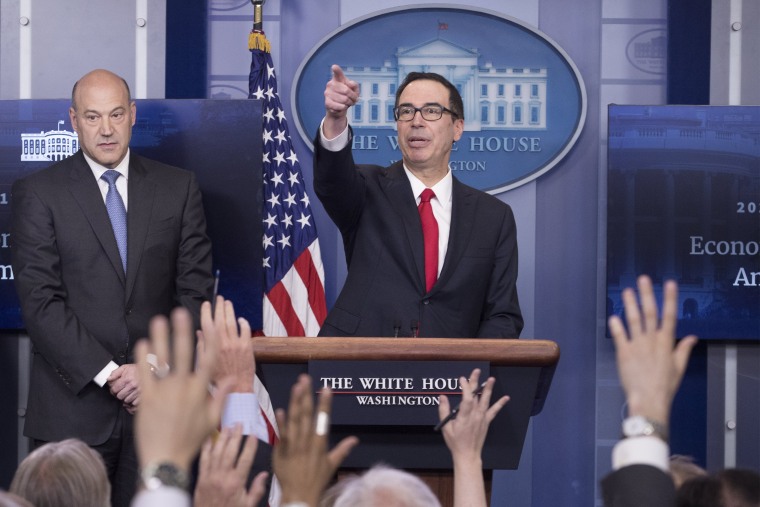In recent years, the debate over Donald Trump's secret tax returns has been fought out largely in the realm of norms, traditions, and expectations. The president was the first major-party candidate of the post-Watergate era to hide these materials from the public -- despite assurances that he wouldn't -- and the political controversy has led to a series of questions about propriety.
At least, that was the original dispute. The fight has quickly evolved into a more serious clash about the Trump administration's willingness to ignore federal laws it doesn't like.
About a month ago, House Ways and Means Committee Chairman Richard Neal (D-Mass.) initiated a process that was supposed to be straightforward: exercising his authority under the law, Neal formally told the Treasury Department that he's demanding access to Trump's tax returns. The Democratic chairman set a deadline, telling the IRS to make the materials available by April 10.
It was more of a directive than a request. Existing federal law, which has been on the books for nearly a century, says the Treasury "shall furnish" the tax materials in response to a formal request from one of a handful of congressional lawmakers, including the chairman of the House Ways and Means Committee.
Treasury Secretary Steven Mnuchin ignored the original deadline, but said he'd personally oversee a review of whether the administration should comply with the law. Evidently, that review process is over, at least as far as the administration is concerned.
Treasury Secretary Steven Mnuchin on Monday rejected House Democrats' request for President Donald Trump's tax returns, failing for the third time to meet a congressional deadline to turn over the documents. [...]The Treasury secretary told House Ways and Means Chairman Richard Neal, D-Mass., in a letter that his committee's request for the president's tax returns "lacks a legitimate legislative purpose."
Of course, the statute doesn't say the administration can ignore the law if officials disapprove of Congress' oversight motivations.
All of this coincides with a parallel effort from Trump's new lawyers -- hired specifically to help keep the president's tax returns hidden -- urging Trump's accounting firm to ignore congressional subpoenas related to the president's financial information.
All of this is almost certainly headed for the courts, where Team Trump is likely to lose. For now, however, the president, his lawyers, and the officials who answer to him are willing to keep fighting and delaying.
To be sure, I have no idea what's in Trump's tax returns. It's entirely possible they're completely benign. But it's hard not to notice that the president and those around him sure are desperate to prevent anyone from seeing the materials.
Donald Trump wrote on Twitter in July 2012, "Why would [Barack Obama] be spending millions of dollars to hide his records if there was nothing to hide?"
In reality, Obama wasn't spending millions to hide anything, though nearly seven years later, the question has new relevance as Trump scrambles to keep his own records hidden.
Postscript: It's hard to say with certainty what would happen if the matter is resolved in the courts, but last fall, former House Speaker Newt Gingrich (R-Ga.), a close Trump ally, reflected on what might happen if Democrats pursued the president's tax returns.
"Then [Democrats will] be trapped into appealing to the Supreme Court," Gingrich said, "and we'll see whether or not the Kavanaugh fight was worth it."
The implication wasn't subtle: Gingrich was making the case that Team Trump expected the Republican's judges to shield the president from accountability.
